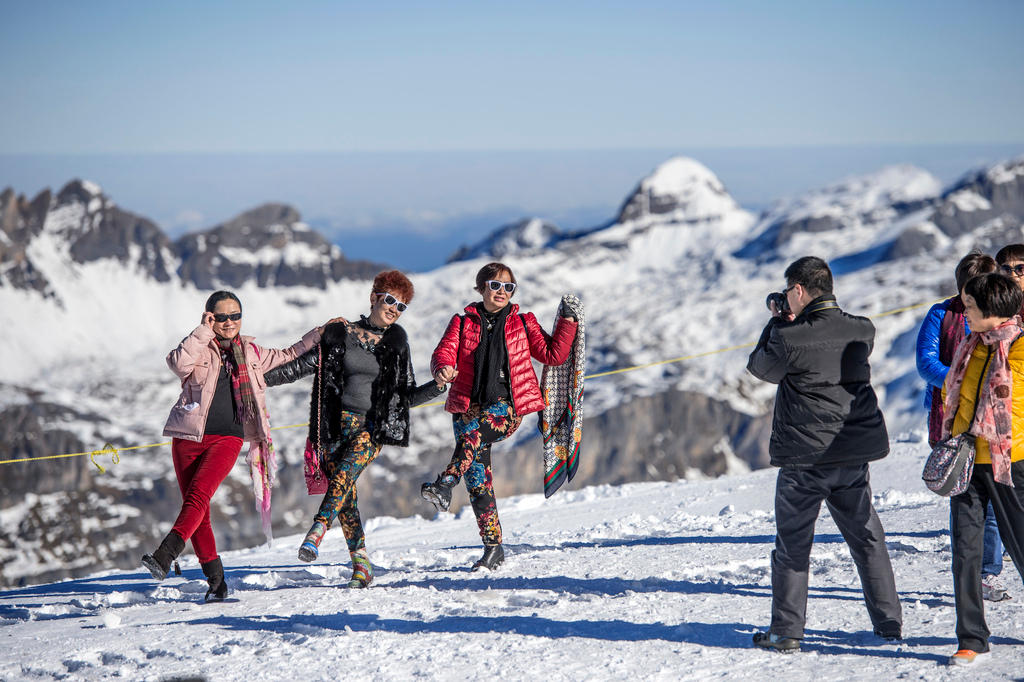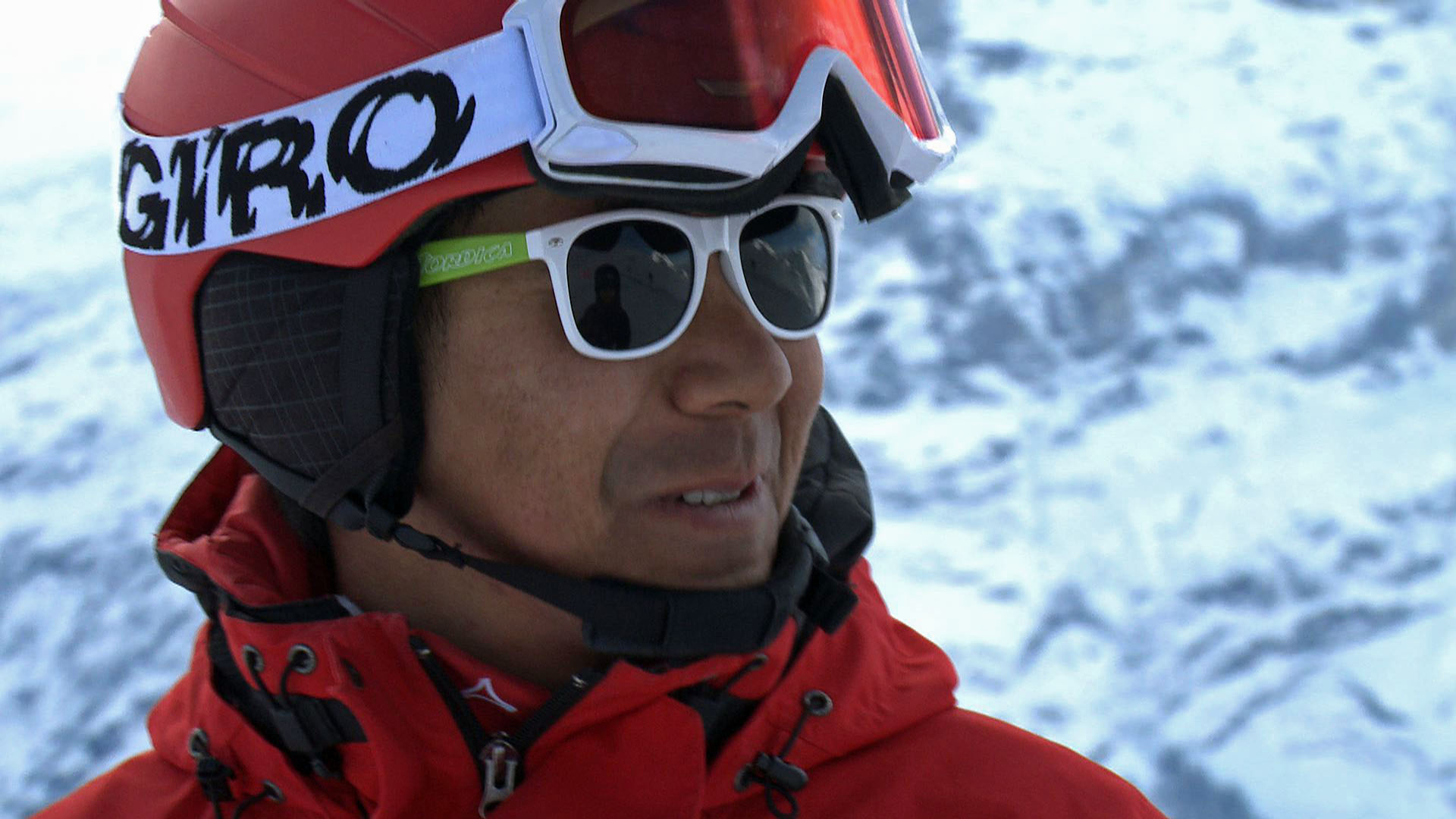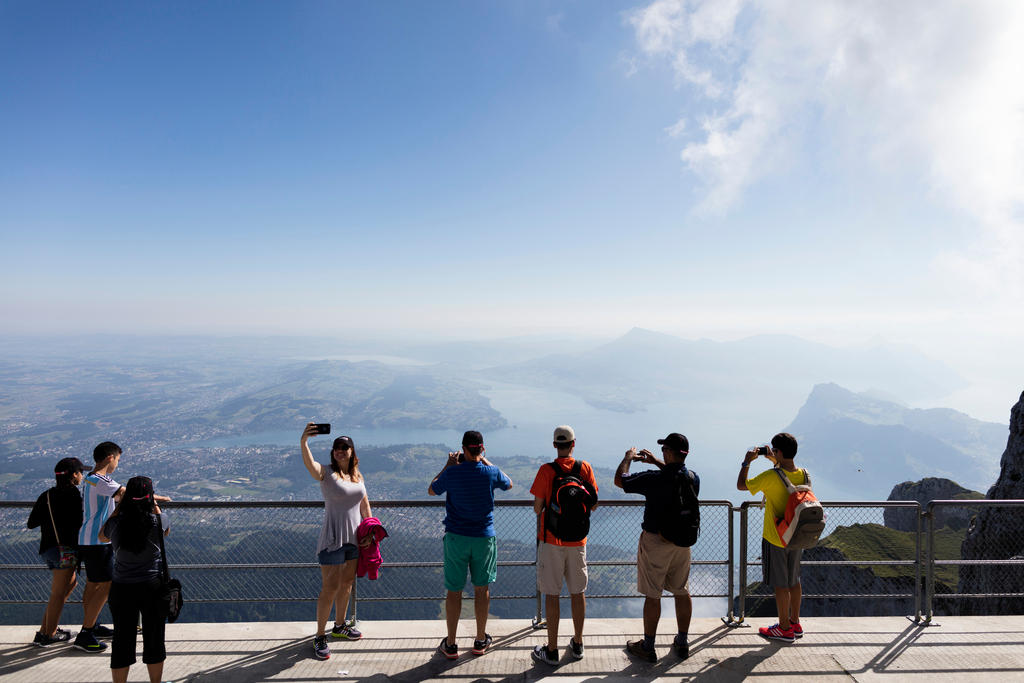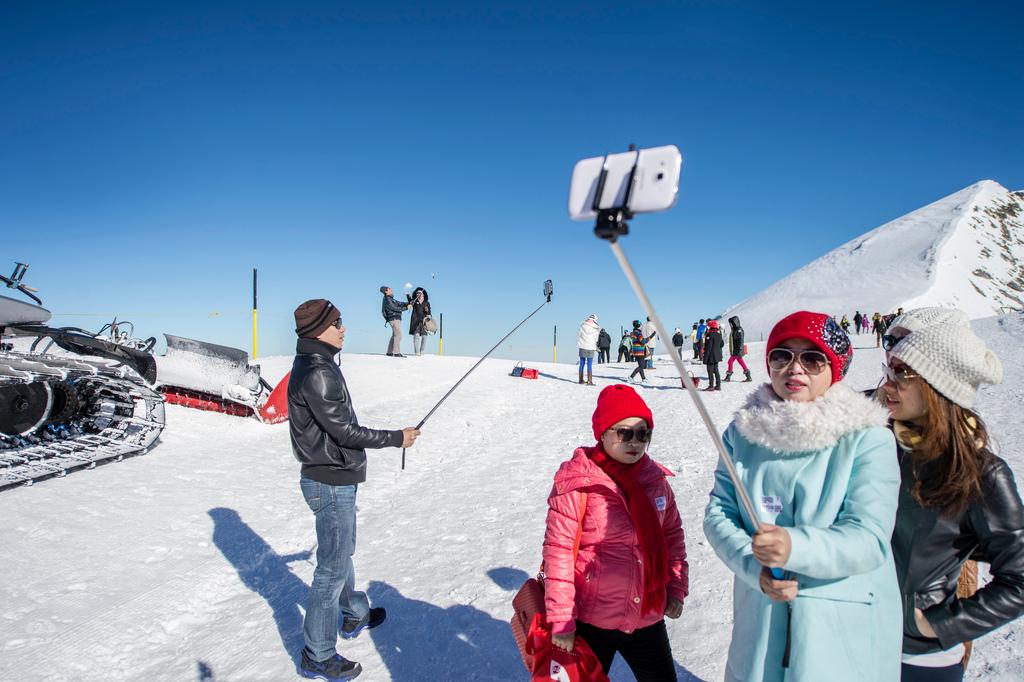Summer bookings by Chinese tourists fall by a fifth

Chinese tourists have long been heralded as the potential saviours of Swiss tourism, but the latest figures on hotel stays show they’re making far fewer bookings as had been hoped.
Terrorist attacks in Europe and the slowing Chinese economy have had a negative impact on Chinese wanderlust. Overnight hotel stays by Chinese tourists during the Swiss summer season this year plummeted by a fifth – 215,000 in absolute numbers – compared with the 2015 summer season.
The provisional figures were released on Monday by the Federal Statistical Office.
The 760,765 overnight stays by Chinese visitors made them the fourth-largest group of travellers to Switzerland by nationality, after Germans, Americans and British. The number of German visitors spending a night over the border in Switzerland fell by 1.5%, British by 0.8% and Indian by 1.8%. Japanese overnight stays dropped by 10.8%.
Overall, Swiss hotels saw 0.2% fewer overnight bookings, with 20 million nights paid for in Switzerland’s hotels during the summer months.
‘Massive potential’
In 2012, more tourists came to Switzerland from China than from traditional visitor countries such as Italy, the Netherlands or Japan.
A total of 600,000 Chinese tourists made the trip that year, which was already a 25% increase on the previous year. Switzerland tourism saw a “massive potential” in the growing Chinese middle class at the time and told swissinfo.ch that “a quadrupling of Chinese visitors within ten years is realistic”.
Switzerland has since tried various tactics to try to hold onto their slice of the Chinese travel-industry pie. From employing Chinese students on Lake Lucerne’s boats, working with visitors from the country who take trips on the boats in their thousands, adding extra trains on the Rigi mountain railway to hiring Chinese ski instructors.

More
Asian approach to life and skiing

In compliance with the JTI standards
More: SWI swissinfo.ch certified by the Journalism Trust Initiative










You can find an overview of ongoing debates with our journalists here . Please join us!
If you want to start a conversation about a topic raised in this article or want to report factual errors, email us at english@swissinfo.ch.